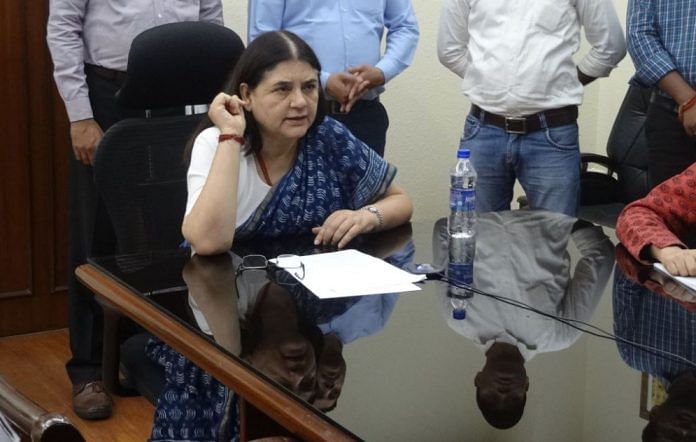Some voiced concerns that the bill will bring voluntary sex workers under the scanner while others say it will help vulnerable sections.
New Delhi: Activists remain divided on the impact of India’s first comprehensive anti-trafficking bill, with some hoping it would help the most vulnerable sections of the society, while others believing that if passed in the present form, it can cause more harm than good.
The Lok Sabha passed a comprehensive law to deal with the menace of human trafficking last week. Members supported the Bill cutting across party lines.
The Trafficking of Persons (Prevention, Protection and Rehabilitation) Bill, 2018 lays special focus on the rehabilitation of survivors of trafficking.
It also has provisions for enhancement of punishment, where the minimum years of imprisonment under the law would be 10 years, and for protection of identity of the survivors.
The Bill, which was passed ahead of the World Day Against Trafficking on Monday, received a mixed response from activists.
Some said the Bill might impact people who were into sex work voluntarily and give more powers to lawyers, police officers and the judiciary to interpret the law as they pleased.
“The Trafficking of Persons (Prevention, Protection and Prosecution) Bill, 2018 is like taking one step forward and two steps back. The Bill, if passed in the present form, will cause more harm than good,” Arun Pandey, Director Arz, a social work organisation that works towards combating trafficking of persons for the purpose of sexual abuse and commercial sexual exploitation in Goa, said.
He said the Bill was mostly a repeat of whatever had been already provided in The Immoral Traffic Prevention Act of 1956 and in the recent judgments of the high courts and the Supreme court.
“Nothing new or extraordinary has been proposed in the Bill. The provisions for the special police officer, special court, special prosecutors are already proposed in the Immoral Traffic Prevention Act, 1956 but in most of the states, it is not being implemented,” he added.
Pandey said the bill was not gender neutral, and added that there was no provision for rehabilitation of transgenders and male victims of child sexual exploitation.
However, Commissioner of Food Safety and Drug Administration in UP government S Ministhy, who has been involved in rescuing and rehabilitation of trafficking victims in her capacity as the Special Secretary of Home Department in UP, earlier said every bill had its pros and cons.
“It is only after implementation and getting feedback on the ground that we can arrive at any definite conclusion. But I do believe that the Bill focuses on empowering survivors and lessening their trauma. Most of the sex workers have been pushed into the profession and denied a life of dignity. The bill looks at them as survivors in need of care,” she said.
Activist Digambar Narzary, of the Nedan Foundation, that works in aiding and rehabilitating trafficked tribal victims in northeastern states, said the mechanism to deal with trafficking was already in place but there was a need to operationalise it.
“We have all the mechanism in place to deal with trafficking but we need to operationalise them,” he said.
Sunita Krishnan, a social activist who has been involved in rescuing, rehabilitating and reintegrating sex-trafficked victims into the society, called the proposed law the need of the hour.
“We need a definitive law against trafficking and this proposed law is need of the hour,” she said.
Apne Aap Women Worldwide, an Indian anti-sex-trafficking organisation, has sent a letter of appeal to the Members of Parliament, asking that Trafficking of Persons (Prevention, Protection and Rehabilitation) Bill, 2018 be sent to a standing committee for further consultations as the Bill is in violation of India’s international obligations, and is anti-women and children.
Its founder, Ruchira Gupta, said the bill gave draconian powers of surveillance to a new National Anti-Trafficking Bureau in the name of investigating trafficking cases and coordinating between law enforcement agencies and NGOs.
“This Bill is extremely dangerous for victims and activists alike,” she said in the letter.
Michelle Mendonca, a Delhi-based advocate, said the Bill makes a first step towards by providing a more supportive legal system for survivors by offering them legal aid. The Bill also provides for in-camera trials to protect survivors from having to testify in open court, she added.
Though the activists’ opinion remained divided on the anti-trafficking bill, all of them believed that most of the trafficking in the country could be solved if people remain vigilant and kept an open eye to locate trafficking victims, who many a times walk among us but are not able to ask for help.
In 2013, UN member states adopted a resolution designating 30 July as the World Day Against Trafficking in Persons to “raise awareness of the situation of victims of human trafficking and for the promotion and protection of their rights”. – PTI



